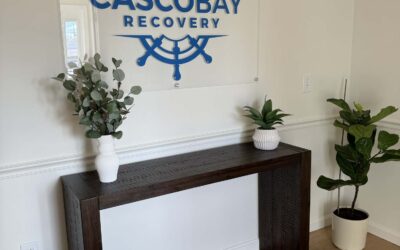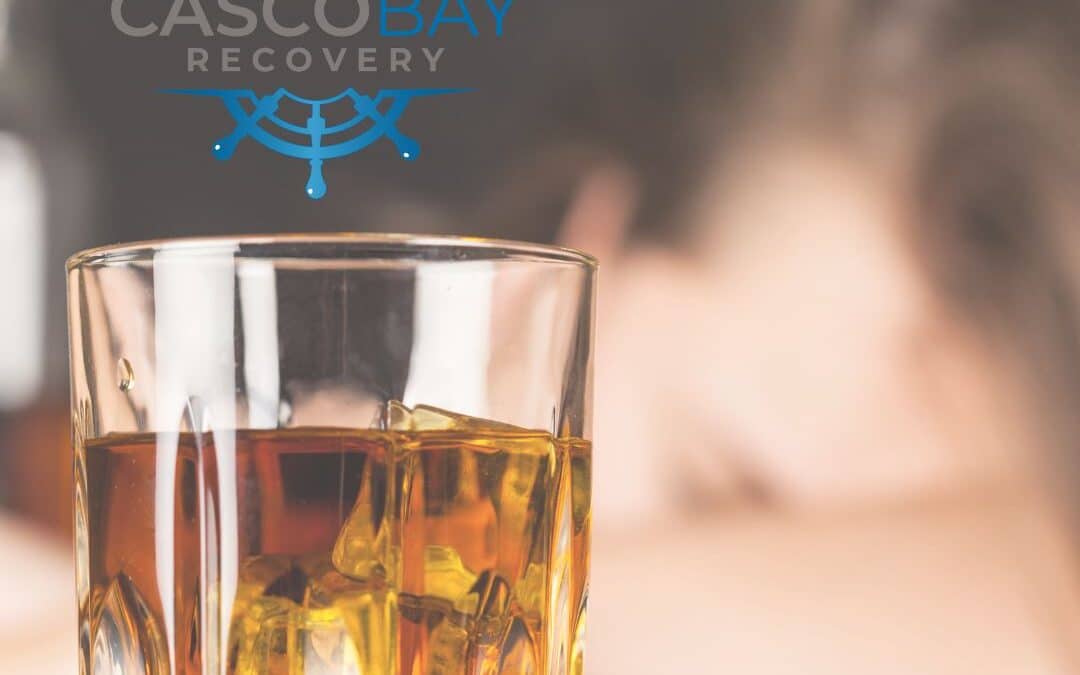Understanding the Role of Resolutions in Recovery
Setting New Year’s resolutions takes on profound meaning during addiction recovery. These goals serve as powerful anchors in your journey toward sustained sobriety, creating a clear path forward in your recovery process.
How Recovery Resolutions Differ from Typical New Year’s Promises
Recovery resolutions differ from typical New Year’s promises. They’re not just about self-improvement – they’re about reclaiming your life and strengthening your commitment to sobriety.
The Benefits of Setting Specific Recovery Resolutions
When you set specific recovery goals, you:
- Create measurable milestones for your progress
- Build accountability for your actions
- Develop a stronger sense of purpose
- Reinforce your dedication to lasting change
The Importance of Structured Goal-Setting in Your Recovery Journey
Your recovery journey benefits from structured goal-setting. Each resolution becomes a building block for personal growth, helping you develop new coping mechanisms and healthy habits. The act of setting these goals empowers you to take control of your recovery journey, transforming abstract wishes into concrete actions.
Progress Over Perfection: The Mindset Behind Setting Resolutions During Recovery
Setting resolutions during recovery isn’t about perfection – it’s about progress. Each goal you set represents a step toward a healthier, more fulfilling life in sobriety.
The Fresh Start Concept and Its Impact on Recovery Goals
The New Year brings a psychological reset – a clean slate that can spark powerful changes in your recovery journey. This fresh start effect creates a natural momentum for implementing positive changes and breaking free from past behaviors.
Research shows that temporal landmarks, like New Year’s Day, can increase motivation and commitment to personal goals. You can harness this natural momentum to establish healthy habits that reinforce your sobriety:
- Create a structured morning routine
- Set regular meal times
- Establish consistent sleep patterns
- Schedule daily physical activity
- Plan alcohol-free social activities
These habits work together to build a strong foundation for long-term recovery. The key is starting small – pick 1-2 habits to focus on initially. As these become automatic, you can gradually add more positive routines to your daily life.
The fresh start mindset isn’t limited to January 1st. You can tap into this renewal energy at the start of any month, week, or even day to realign with your recovery goals and healthy habits.
Utilizing the SMART Goals Framework for Effective Recovery Objectives
Setting effective goals in recovery requires a structured approach. The SMART goals framework provides a proven method to create meaningful, achievable objectives that support your sobriety journey.
Let’s break down the SMART criteria:
Specific: Your goals need clear definition. Instead of “I want to stay sober,” try “I will attend three recovery meetings each week.”
Measurable: Track your progress with concrete metrics. Examples include:
- Days of sobriety
- Number of meetings attended
- Hours spent on self-care activities
- Weekly therapy sessions completed
Achievable: Set realistic goals within your current capabilities. Start with small, manageable targets and gradually increase their scope as you build confidence.
Relevant: Each goal should directly support your recovery. Focus on activities and commitments that strengthen your sobriety foundation.
Time-bound: Set specific deadlines for your objectives. This creates accountability and helps you stay focused.
Applying SMART goals to your recovery journey might look like this:
Short-term goal: “I will meditate for 10 minutes every morning for the next 30 days to reduce stress and improve mindfulness.”
Long-term goal: “I will complete a 12-step program within six months by working with my sponsor weekly and completing all required assignments.”
These structured objectives create a clear path forward while maintaining flexibility for adjustment as needed. Your recovery goals become tangible targets rather than vague aspirations, increasing your chances of success in maintaining sobriety.
Practical Examples of Effective Resolutions for Sobriety
Let’s explore tangible resolutions that can strengthen your recovery journey. These practical goals create a foundation for lasting sobriety while enriching your daily life.
1. Journaling for Recovery
- Set aside 15 minutes each morning to write about your feelings
- Track your triggers and emotional patterns
- Document your progress and celebrate small victories
- Write gratitude lists to maintain perspective
2. Physical Activities That Support Sobriety
- Start with 20-minute daily walks
- Join a local gym or fitness class
- Practice yoga for mind-body connection
- Set achievable fitness milestones
3. Engaging Sober Hobbies
- Learn a musical instrument
- Take up photography or painting
- Join a cooking class
- Start gardening or indoor plant care
- Volunteer at local organizations
These activities serve multiple purposes in your recovery: they fill time constructively, reduce stress, build confidence, and create opportunities for social connections. By choosing activities that genuinely interest you, you’re more likely to maintain them long-term.
Remember to start small – pick one or two activities that resonate with you. As you build consistency with these new habits, you can gradually expand your repertoire of sober activities. Each new skill or hobby becomes another tool in your recovery toolkit. Embracing the benefits of sobriety can further motivate you on this journey.
Simplifying Life for Better Recovery Outcomes
A cluttered environment creates a cluttered mind. Simplifying your living space and daily routines can significantly reduce stress triggers and strengthen your commitment to sobriety.
Decluttering Your Space
- Remove items that remind you of past substance use
- Create designated spaces for meditation and relaxation
- Keep your living areas clean and organized
- Maintain a minimalist approach to reduce visual distractions
Creating Structure Through Schedules
- Set consistent wake-up and bedtime hours
- Plan meals and exercise at regular times
- Block specific times for recovery activities
- Schedule self-care activities
Your daily schedule acts as a protective barrier against impulsive decisions. A structured routine eliminates the guesswork of “what’s next” and reduces decision fatigue – a common trigger for relapse.
Time-Blocking Strategy:
- Morning routine (6-8 AM): Meditation, breakfast, hygiene
- Work/productive hours (9-5 PM): Include regular breaks
- Recovery activities (5-7 PM): Support meetings, therapy
- Evening wind-down (7-10 PM): Relaxation, reflection
A simplified life creates mental space for healing and growth. By maintaining an organized environment and following structured schedules, you build a strong foundation for your recovery journey.
Building Community and Support Networks in Addiction Recovery
Recovery thrives on human connection. Building strong support networks creates a foundation for lasting sobriety and personal growth. Here’s how you can strengthen your recovery community:
Join Support Groups
- Attend local AA or NA meetings
- Participate in online recovery forums
- Connect with sober living communities
- Find specialized groups that match your interests
Engage in Community Service
- Volunteer at local recovery centers
- Help organize sober events
- Share your recovery story with others
- Mentor newcomers to recovery
Creating meaningful relationships with others in recovery provides accountability, understanding, and encouragement. These connections offer practical benefits:
- Shared experiences and coping strategies
- 24/7 support during challenging moments
- Access to recovery resources
- Opportunities for personal growth
Your support network can include:
- Recovery group members
- Sober friends
- Family members who support your journey
- Mental health professionals
- Recovery coaches
- Spiritual advisors
Active participation in support groups helps maintain long-term sobriety. Regular attendance at meetings, sharing your experiences, and listening to others creates a sense of belonging and purpose. These connections remind you that you’re not alone in your journey and provide strength during challenging times.
Mindfulness, Self-Care Practices, and Flexibility in Goal Adjustment During Recovery
Your path to sobriety requires a balanced approach that includes mindfulness and adaptable goal-setting. Daily mindfulness practices create a strong foundation for maintaining sobriety through increased self-awareness and emotional regulation.
Essential Mindfulness Practices for Recovery:
- Start with 5-minute meditation sessions
- Practice mindful breathing during stress triggers
- Engage in body scan exercises before bed
- Use mindful walking during outdoor activities
Self-care extends beyond basic needs – it’s a vital component of your recovery journey. Creating a personalized self-care routine helps maintain emotional stability and reduces relapse risks.
Self-Care Activities to Support Your Recovery:
- Regular exercise tailored to your fitness level
- Consistent sleep schedule
- Nutritious meal planning
- Creative activities like art or music
- Time in nature
Goals in recovery aren’t set in stone. Listen to your body and mind – adjust your objectives when needed. If meditation feels challenging, start with one minute daily. When exercise goals seem overwhelming, break them into smaller steps.
Tips for Flexible Goal Adjustment:
- Review your goals weekly
- Celebrate small victories
- Modify timelines when necessary
- Focus on progress rather than perfection
- Add new goals as you achieve existing ones
Remember that mindfulness and self-care practices strengthen your resilience in recovery. These tools help you stay present, manage stress, and maintain focus on your sobriety journey.
Connecting with Casco Bay Recovery for Your Journey Towards a Sober New Year
Your path to sobriety deserves professional guidance and support. At Casco Bay Recovery, we offer comprehensive addiction treatment programs tailored to your unique needs:
- Intensive Outpatient Programs (IOP) – Flexible treatment while maintaining daily responsibilities
- Partial Hospitalization Programs (PHP) – Structured support with medical supervision
- Dual Diagnosis Treatment – Addressing both addiction and mental health concerns
- Individual Counseling – One-on-one therapeutic support
- Group Therapy Sessions – Building community and shared experiences
We understand that starting your recovery journey can feel overwhelming. Our experienced team stands ready to help you create and achieve your sobriety goals for the New Year.
As you embark on this transformative journey, remember that finding joy in sobriety is not just possible, but attainable. We are here to help you rebuild your life, find purpose, and experience lasting happiness.
Take the first step toward a sober 2024 – reach out to us at [phone number]. Our admissions team is available 24/7 to answer your questions and guide you through the enrollment process. You can also easily contact us for immediate assistance.
Your commitment to sobriety deserves professional support. Let’s work together to make this New Year the beginning of your lasting recovery. As we approach the New Year, it’s essential to set realistic and healthy goals for mental health in the New Year.








